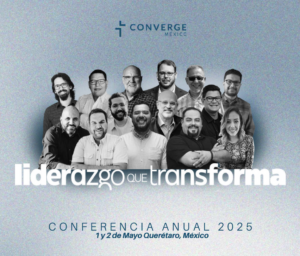With the unprecedented state of our country right now, many churches are navigating the transition to online church. Whether your church has been streaming Sunday services for months now or you’ve never considered it until yesterday, this can be an intimidating time for your church leadership. Here are a few ways your church can leverage social media to reach your congregation.
Stream Sunday Services from Home
The CDC has recommended that all gatherings of 50 or more people be canceled for the next 8 weeks. This likely means your church will be canceling Sunday gatherings for the next 8 weeks, along with any other gatherings your church may hold. While you may see this as discouraging, it is in fact an incredible opportunity for your church to find new ways to meet people where they are. And right now, where they are is at home.
Don’t feel the pressure to keep on having church as usual and stream a professional-quality service. People will likely be at home on the couch in their pajamas participating in online church services. Embrace this fact! Have your pastor preach in pajamas. Show your worship leader’s kids running around the living room. Make your online service as informal as your congregation.
Here are a few free resources for streaming Sunday services:
- Facebook Live – Go live from your church’s page or your pastor’s profile using your smartphone. Read: How To Go Live on Facebook
- OBS – Go live on Facebook with a multicam setup using OBS. (Note: this is not recommended for churches with no live stream experience.) Listen: How to Setup OBS for Facebook Live Streams.
- Instagram Live – Instagram lets you add another user when you go live. This is a great feature if your pastor and worship leader are in different physical locations; one can go live from his or her own device and then invite the other to join the stream. Read: How to Go Live with a Friend on Instagram.
- Facebook Watch Party – With Facebook’s Watch Party feature, you can pre-record your service and start a watch party for your congregation to tune in together at a designated time. Read: How To Host a Watch Party.
A few things to consider when streaming Sunday services:
- It’s not all about the video. Make sure your staff and leadership are online and ready to moderate and respond to comments during the stream. This is how your congregation will feel connected in an otherwise impersonal situation.
- Keep it simple. If you’ve never done an online service before, stick to Facebook or Instagram live. There’s no need to pay for a live stream service; prioritize relationship over professionalism.
- Read More: Why Live Streaming is not the Full Answer.
Start Google Hangouts instead of Home Groups
Your church may also be considering canceling any home groups for the next 8 weeks. Don’t let this be discouraging! Use this as an opportunity to reinvent home groups for your congregation. Consider meeting via video chat or conference call, instead.
Google Hangouts is a great resource for this because it is free and simple to set up. You can start a hangout with video call, phone call, or messages. Read: How To Start a Google Hangout.
Host Prayer Meetings via Facebook
Consider making a Facebook post weekly or daily asking your congregation to pray for one another. Encourage people to post prayer requests in the comments, and to type out their prayers for other congregation members. This is a great way to teach your congregation that prayer is communal and accessible.
Practical tips for starting a Facebook post prayer chain:
- Respond to every comment. Yes, every single one! Thank them for their prayer request, write out a prayer for them, and encourage them to reach out if they need more prayer. Asking for prayer puts people in a strange, vulnerable state, so be sure to honor their request by acknowledging and caring for them.
- Open up about your own prayer requests. Show your congregation that your Facebook post is a safe place to ask for prayer; so safe that even you are asking!
- Make your post private. This protects the privacy of everyone participating. You may also need to take some time to add your congregation members as friends on Facebook; this is a great opportunity to do so! Read: How to Change Privacy Settings for a Facebook Post.
- Offer an alternate channel for those who desire more privacy. Some people may not feel comfortable posting their prayer requests in your comments. Be sure to make it known that anyone can message you privately if they would prefer. And again, respond to every message with gratitude and prayer!
Start a Group Message or Facebook Group for Your Community.
Now is a great time for your church to start a Facebook Group for your congregation to communicate with one another. Facebook Groups are a great way to get conversations started online that are searchable and accessible. Groups also allow users to set their notification settings so they are more likely to see what is posted in the group.
Here are a few conversation-starters to post in your Facebook group(s) this week:
- What are you anxious about? How can we pray for you today?
- What needs do you have that our church family can meet? Are you running low on any essentials?
- How is your family coping with the uprooted routine?
- What is your “new normal?”
- Who in your community are you praying for today? What friend/neighbor/coworker/acquaintance needs a little extra love?
Resources for Facebook Groups:
- Join a few other Facebook groups and see how their members and moderators interact. One example is Nik Goodner’s CRTVCHURCH Group.
- Read: How to create a Facebook Group.
People at home = People on Facebook. Post more.
If you have developed a plan for what and when to post to social media, now is the time to throw that plan out the window. The state of our world is completely different today than it was a week ago, so our churches’ social media presence needs to be different, too.
People in your congregation will be on social media even more over the next 8 weeks. Business will be slower, people will be working from home or not working at all, and the lack of physical connection with others in the midst of social distancing will drive people to seek online connection more and more. So meet people where they are!
Consider posting 2-3 times per day. Post content related to COVID-19 as well as content not related at all. Share posts from other churches that your congregation may appreciate. Take the time you would have used planning in-person events to instead plan online content to share with your congregation.
Resources for what to post:
- Read: 5 Things Every Church should be Posting on Social Media.
- Follow SundaySocial on Instagram.
- Follow other churches and businesses in your community and around the world to see what type of content other leaders are sharing.
Share relevant information without creating anxiety.
As your church takes to the web over the next 8 weeks, do not feel the pressure to be your congregation’s sole source of COVID-19 information. Direct people to reputable sources for information. Instead of sharing a step-by-step guide to keeping the virus from spreading, share a word of encouragement to your community in this season of anxiety. Use your social media platform to ask questions and open dialogue around what concerns your community has. And don’t be afraid of changing the subject every now and then; not every post you make needs to be focused on COVID-19.
What else?
As we enter into this unprecedented season, what questions do you have about your church’s social media presence? What steps will you be taking this week to better connect with your congregation online? What concerns do you have about this analog to digital transition? How can we help you make this transition as smoothly as possible?



